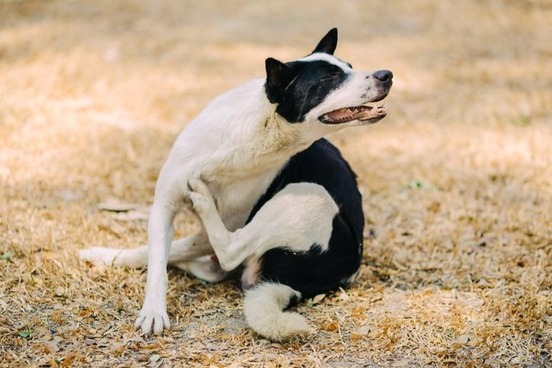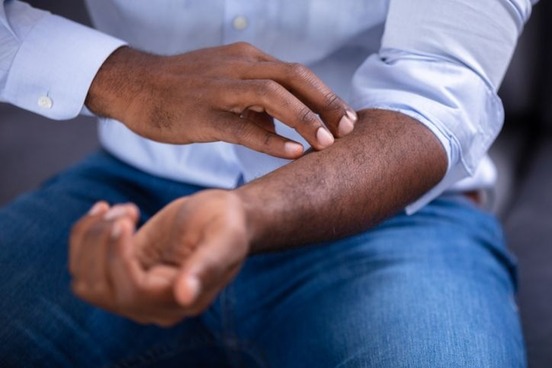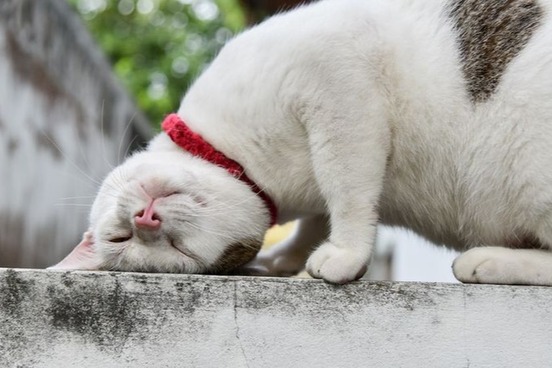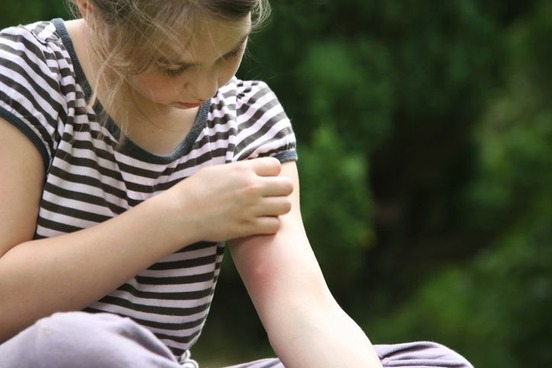
Itch
Definition - an uneasy irritating sensation in the upper surface of the skin usually held to result from mild stimulation of pain receptors
Itch is a word with many possible meanings, few of which are likely to be viewed as pleasant or desirable. The word may function as either a verb or a noun, both of which have been in use in English since before the 12th century. Along the way the word has also been associated, in an uncomplimentary fashion, with more than one country.
In 1699 B. E., author of The Canting Crew defined Welsh-fiddle as “the itch,” and also provided an entry for Itch-land with the definition of “Wales.” Several decades later lexicographer Nathaniel Bailey decided that Scotland was the proper answer to the question of ‘where is Itch-land?,’ and that the Itch could be referred to as either the Scotch or the Welsh fiddle. We advise you to avoid all these terms, when traveling in either country.
…but lest I should be again tormented with a supposed apparition, I besought my landlord to let his son sleep with me, which he obligingly did; and, to compleat my misfortunes, I got the Scotch fiddle, which I continued to play most harmoniously, while I remained in that kingdom.
— John Carteret Pilkington, The life of John Carteret Pilkington, 1762

Urticant
Definition - producing itching or stinging; especially, producing an itching swelling
Urticant may be an adjective, with the definition above, or a noun, referring to the thing that produces an itching or stinging. This word comes from the Latin urticare (“to sting”), a root it shares with Urticaceae (“a family of herbs, shrubs, and trees (order Urticales) including many with stinging hairs”), urticaria (another word for hives), and the wonderfully useful and specific urticose, meaning “abounding wth nettles.”
As ever, one takes leave to doubt whether humankind becomes much more kin as a result of such enterprises: the case for international sport as urticant rather than than emollient remains strong.
— John Coleman, New Statesman (London, Eng.), 8 Oct. 1965

Yeuky
Definition - itchy
Yeuky and yeuk (“itching”) share a root with the words itchy and itch; all come from the Old English giccan. Yeuky is labeled as ‘chiefly Scottish.’ Chiefly precedes a label when the word has some currency outside the specified region, although we do not think it very likely that you will encounter yeuky in current use, no matter where you find yourself.
The Captain bribed Jamie to let the Laird down in the middle of the stream. Jamie took the Laird of Cavers on his back, and proceeded to wade over; but at midstream crying out, “O, Laird, my kuit’s yeuky,” he plunged him into the water, and began to rub his ankle to the great amusement of the Captain.
— Evening Telegraph (Dundee, Scot.), 16 Dec. 1887

Cacoëthes
Definition - a habitual and uncontrollable desire. A mania, or itch
Cacoëthes does not really have all that much to do with itching, at least not with the type that accompanies a mosquito bite, or an unfortunate acquaintance with poison ivy. The word may be traced to the Greek kakoēthes meaning “wickedness,” and in current English use may refer to the sense of itch defined as “a restless usually constant often compulsive desire.” We find this figurative itchiness of cacoëthes as well in the the term cacoëthes scribendi, which is defined as “an uncontrollable urge to write.”
A MAN may answer for it, That is Mr. Budgell was but properly touched, and had the Cacoethes Scribendi strong upon him, an Epistle no linger thn the Horn-Book, shall give rise to Volumes that honest Fox, that elaborate Martyrologist, would blush at the Thickness of.
— Cleomenes, A proper reply to a scurrilous pamphlet, 1732

Pruritic
Definition - of, relating to, or marked by itching
Any time you come across a word in English beginning with prur- it is fairly certain that its meaning is connected to something itchy, or used to be. The Latin prurire (“to itch”) serves as the root for many of these, which include pruritus (“itch”), pruriginous (memorably defined by Thomas Blount in 1656 as “full of the itch”), and prurient, which first had the meaning “itching with curiosity,” and later took on such senses as “having or easily susceptible to lascivious thoughts or desires” and “exhibiting abnormally rapid or excessive growth.” Something that relieves or prevents itching is called antipruritic.
4 P. M., Tuesday. Surface, dry and pruritic from the opiate.
—W. F. Peck, Medical and Surgical Reporter (Philadelphia, PA), 15 Apr. 1865

Rumple-fyke
Definition - an itch on (or in) one’s posterior
While it may be said with a fair degree of certainty that no one wants to have an itch it may also be said that certain portions of one’s anatomy are preferable locations for such an affliction. Rumple-fyke is the correct term for one of the places where one does not wish to have an itch.
This word is now quite thoroughly obsolete, and, of the modern dictionaries, may only be found in The Oxford English Dictionary. They define it, with admirable forthrightness, as “an itch in the anus; (also) sexual desire.” For those who are curious about the origins of this term, rumple is a word meaning “tail, rump,” and fike means “to fidget.”
John Jamieson, in his 19th century Supplement to the Etymological Dictionary of the Scottish Language, defined the word a bit more delicately: “A designation for the itch, when it has got a firm seat,” and helpfully offered the suggested etymology:
…“from rumple and fyke, q.v.; because a person, who is very bad with this disorder … rubs his back against a tree or wall for the purpose of removing the itchiness.”





